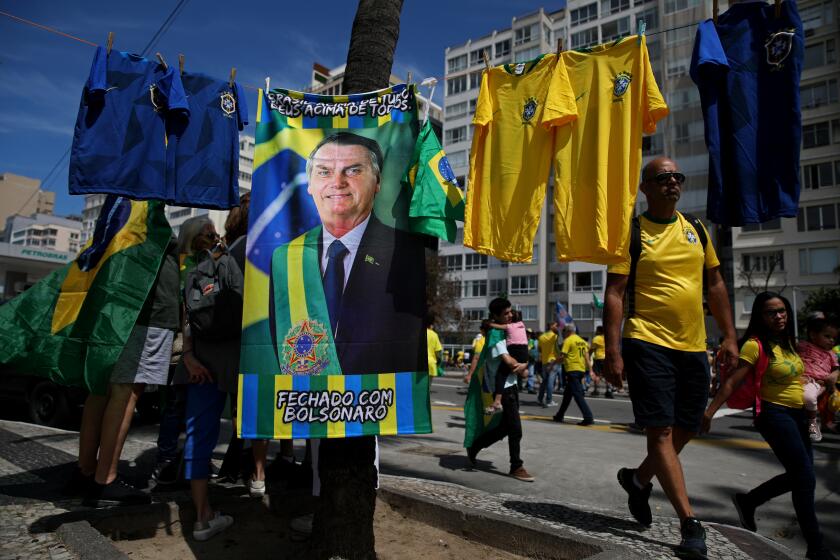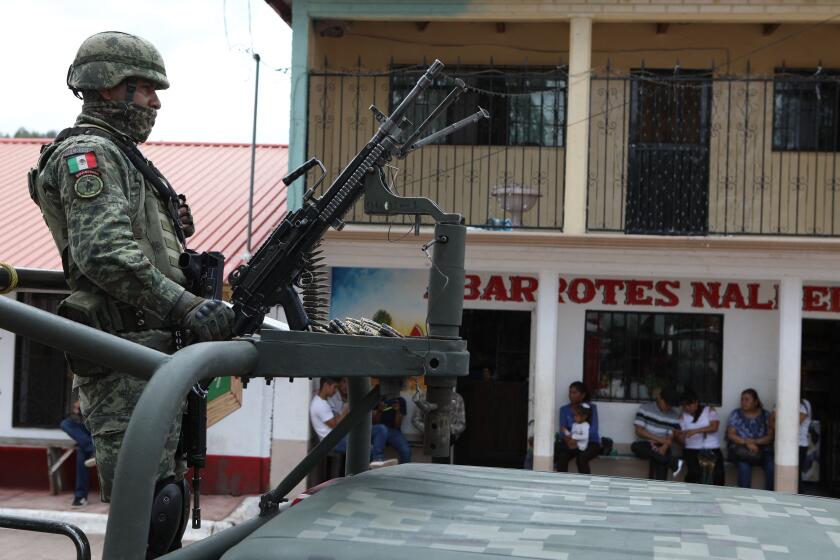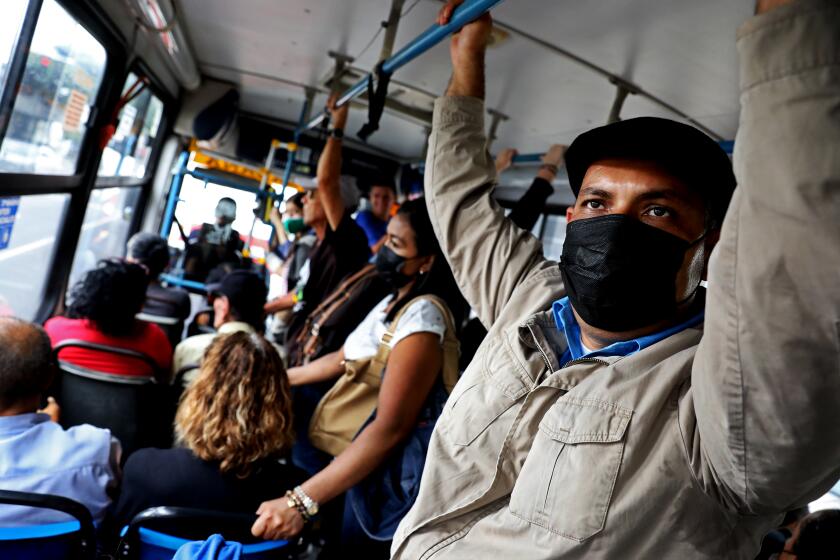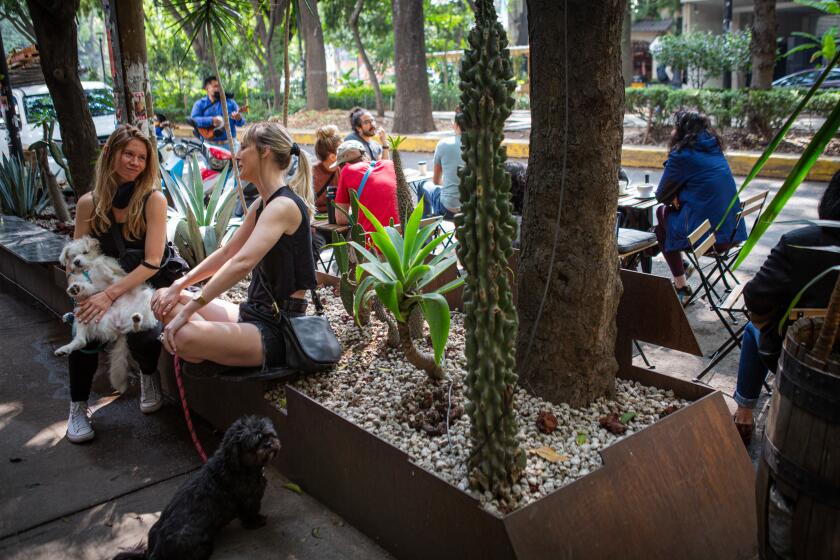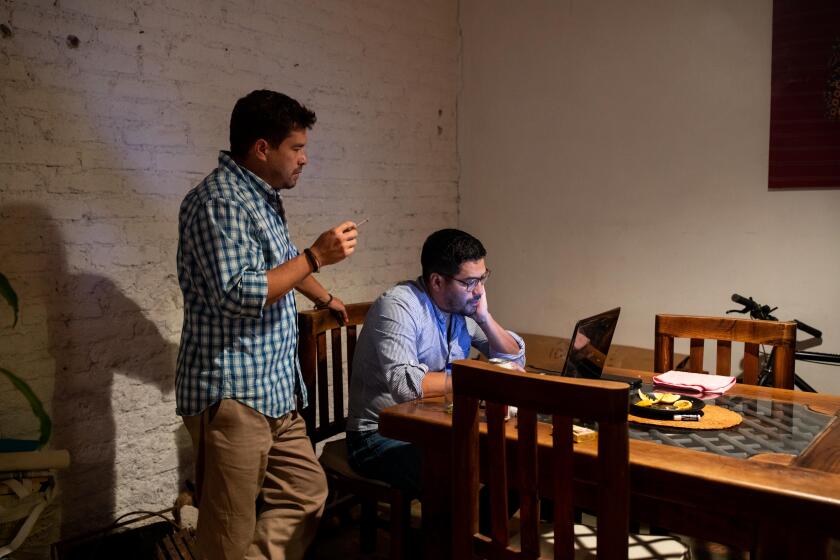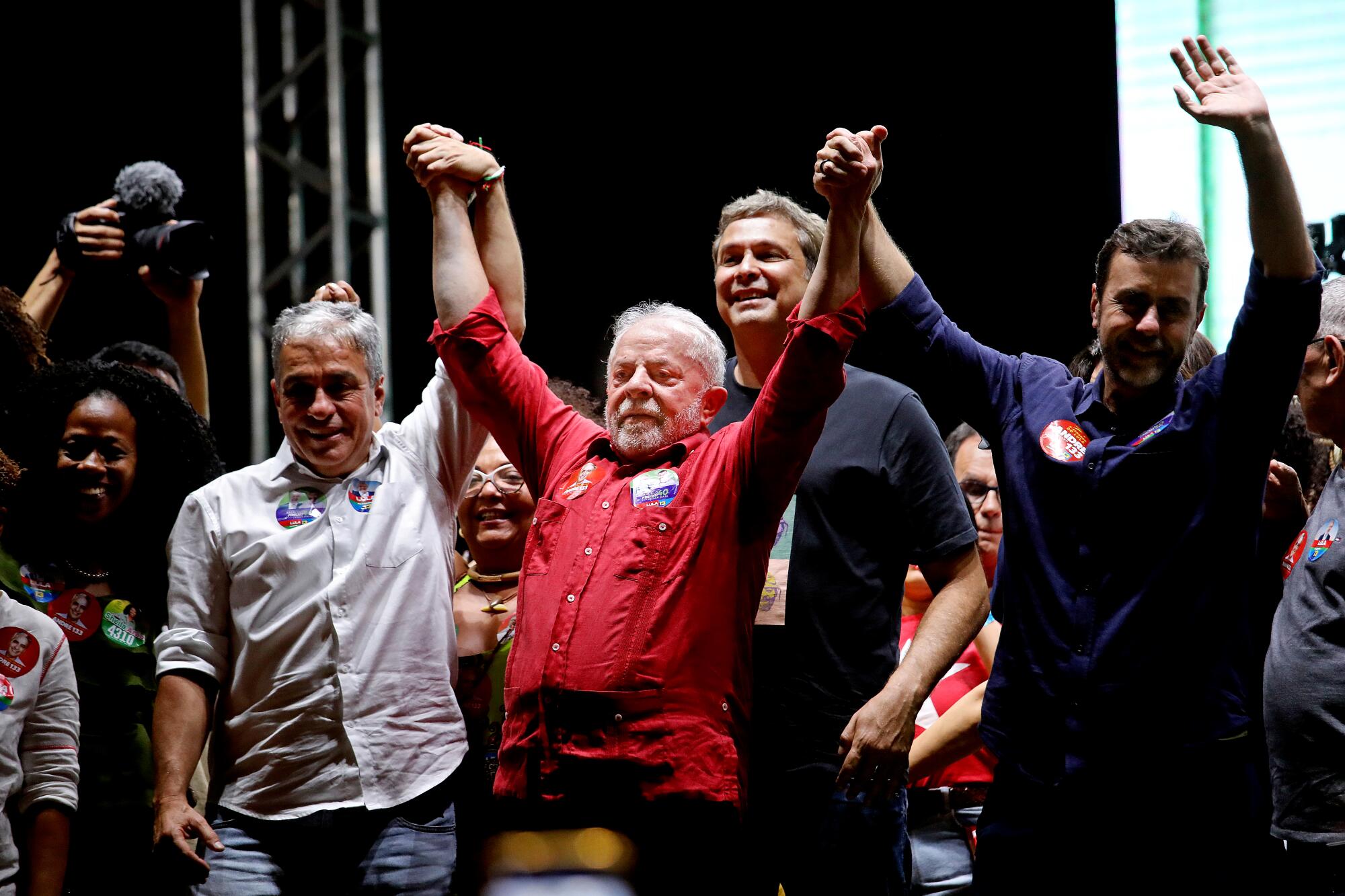
- Share via
NOVA IGUACU, Brazil — Three years ago, Luiz Inácio Lula da Silva was languishing in a prison cell.
The former president of Brazil, who led the country from 2003 to 2010, was months into a 12-year jail sentence for corruption. His political career appeared to be over.
So when he took the stage on a recent balmy evening in this working-class city outside Rio de Janeiro — smiling widely as a crowd of thousands chanted his name — it was a comeback that once would have been unimaginable.
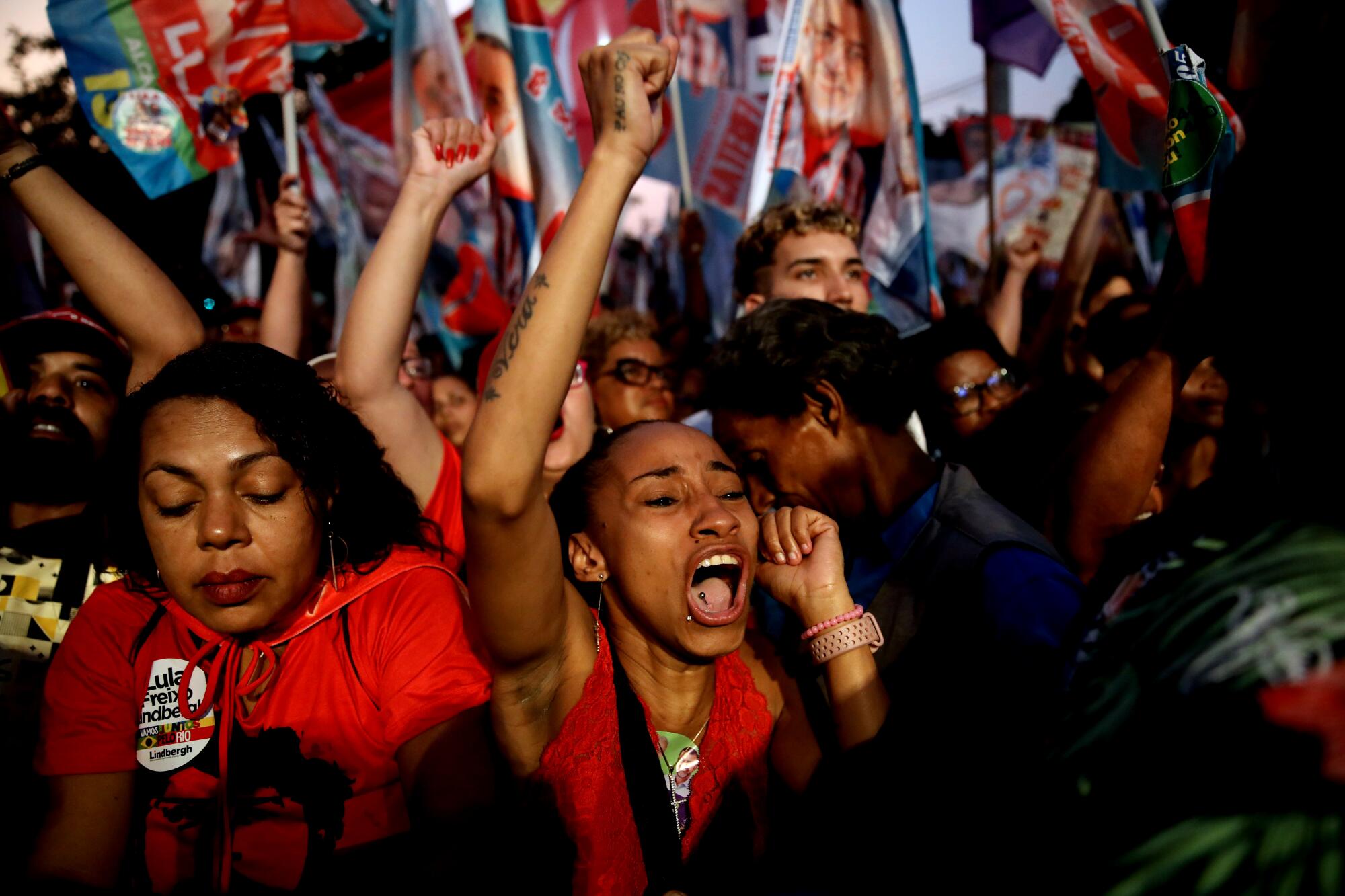
Lula, as he is widely known, appears poised to win Brazil’s presidential election. The question, polls suggest, isn’t whether he will beat far-right incumbent Jair Bolsonaro, but when.
Recent surveys have shown Lula with about 45% of the vote compared with 35% for Bolsonaro, putting Lula within striking distance to win outright by capturing at least half the vote in the first round of balloting Sunday. If no candidate wins more than 50%, the top two finishers will go to a runoff election Oct. 30.
A victory for Lula — who was released from prison in 2019 after a court ruled that the judge who oversaw his corruption trial was biased — would cap one of the most remarkable political resurgences in recent memory.
It would be a testament not only to the grit and populist appeal of a man former President Obama once called “the most popular president on Earth,” but also to growing concerns about widening inequality that have catapulted a new wave of leftists to power across Latin America in recent years.
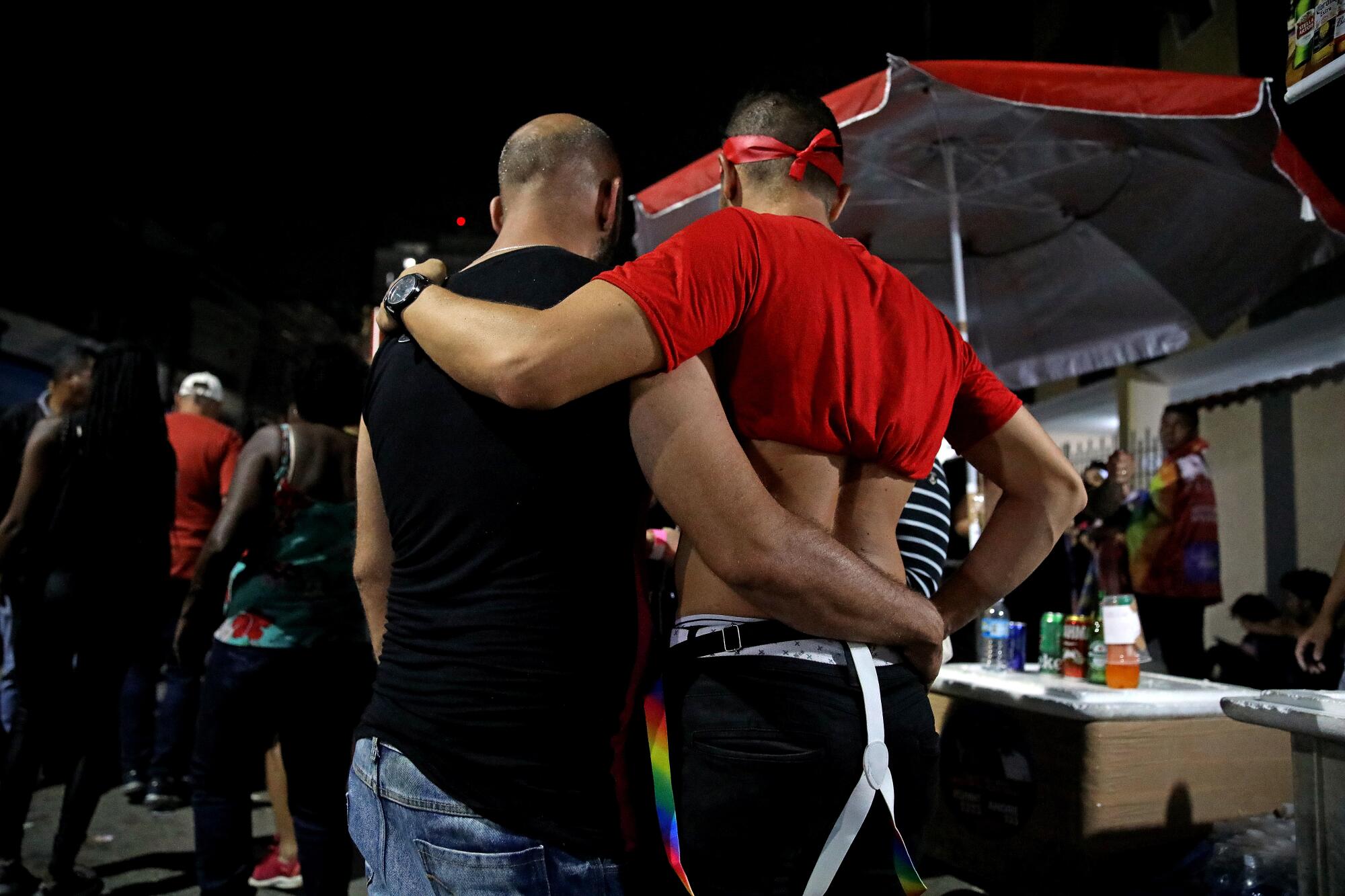
Analysts say Lula’s domination in the polls has plenty to do with Bolsonaro, 67, a blunt-talking former military officer who has faced his own corruption allegations and who is widely believed to have botched Brazil’s response to the COVID-19 pandemic.
Brazilian President Jair Bolsonaro summoned his supporters into the streets to challenge the voting system ahead of October’s election.
But Lula has also skillfully tapped into Brazilians’ longing for the more prosperous days of his presidency, when the country rose from the world’s 13th- to the seventh-largest economy and, as Lula points out often on the campaign trail, average people could afford beef.
“We had some really good years,” said Marcelo Franca, a 62-year-old writer. “People are nostalgic for that.”
But virtually everybody agrees that if Lula wins, he’ll have a hard time replicating his previous success because the political and economic ground has shifted so dramatically.
President Andrés Manuel López Obrador promised a radical break with the militarized security strategy of his predecessors, which he blamed for turning Mexico ‘into a cemetery.’ Instead, he has embraced the armed forces with unprecedented fervor.
Brazil’s growth during Lula’s first two terms was driven by surging global demand for commodities such as soybeans and iron, as well as the discovery of the largest oil reserves in the country’s history.
Today the nation, like much of the rest of the world, is trying to climb out of the economic crater left by the pandemic while battling double-digit inflation and rising fuel costs.
“It’s a much more complicated world,” said Brian Winter, vice president for policy at the Council of the Americas. “It’s not nearly as much fun to be a president now as it was during the 2000s.”
And if Lula wins, he will be tasked with governing a nation that has never been more divided.
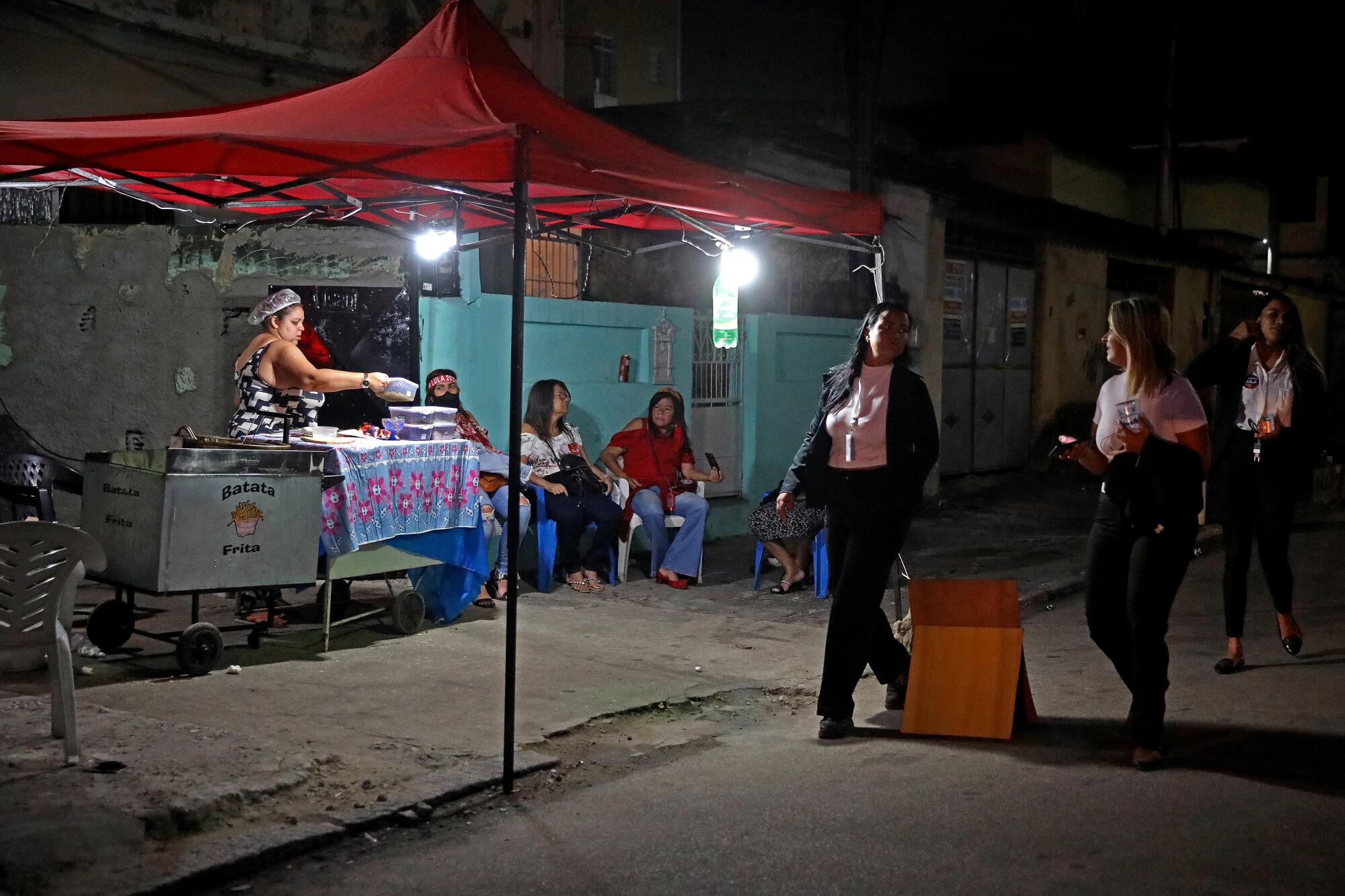
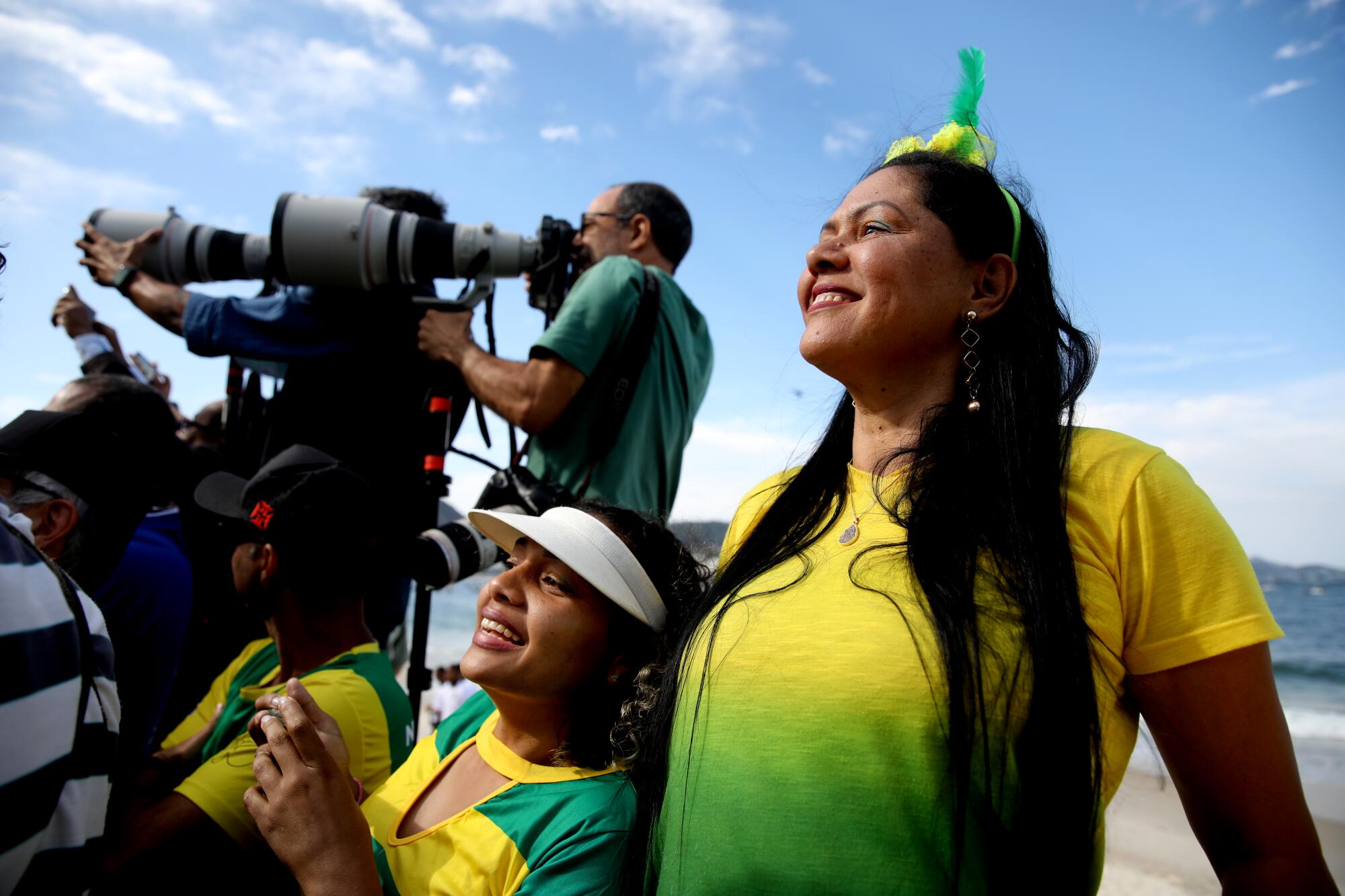
Since the corruption case against him and the impeachment of his chosen successor, Dilma Rousseff, polarization has become more entrenched, with the left blaming the right for manipulating the justice system and Bolsonaro supporters vilifying Lula as a thief who plans to steal the election.
Bolsonaro has fanned those tensions by borrowing from the playbook of his ally, former President Trump, by sowing doubt about the integrity of Brazil’s voting system, which the U.S. insists is sound. Bolsonaro has suggested he may reject the election’s results and has hinted at violence, saying he views just three possibilities for his future: “prison, being killed or victory.”
With virtually no independent journalists left inside and foreign reporters banned from entering, Nicaragua has become ‘an information black hole.’
The tense atmosphere was evident at Lula’s rally in Nova Iguaçu, where spectators were frisked for weapons and Lula’s chest bulged with a bulletproof vest.
At 76, the candidate’s trademark beard and curly mop of hair have gone white. His famously husky voice has taken on a more gravelly tone since a 2011 bout with throat cancer.
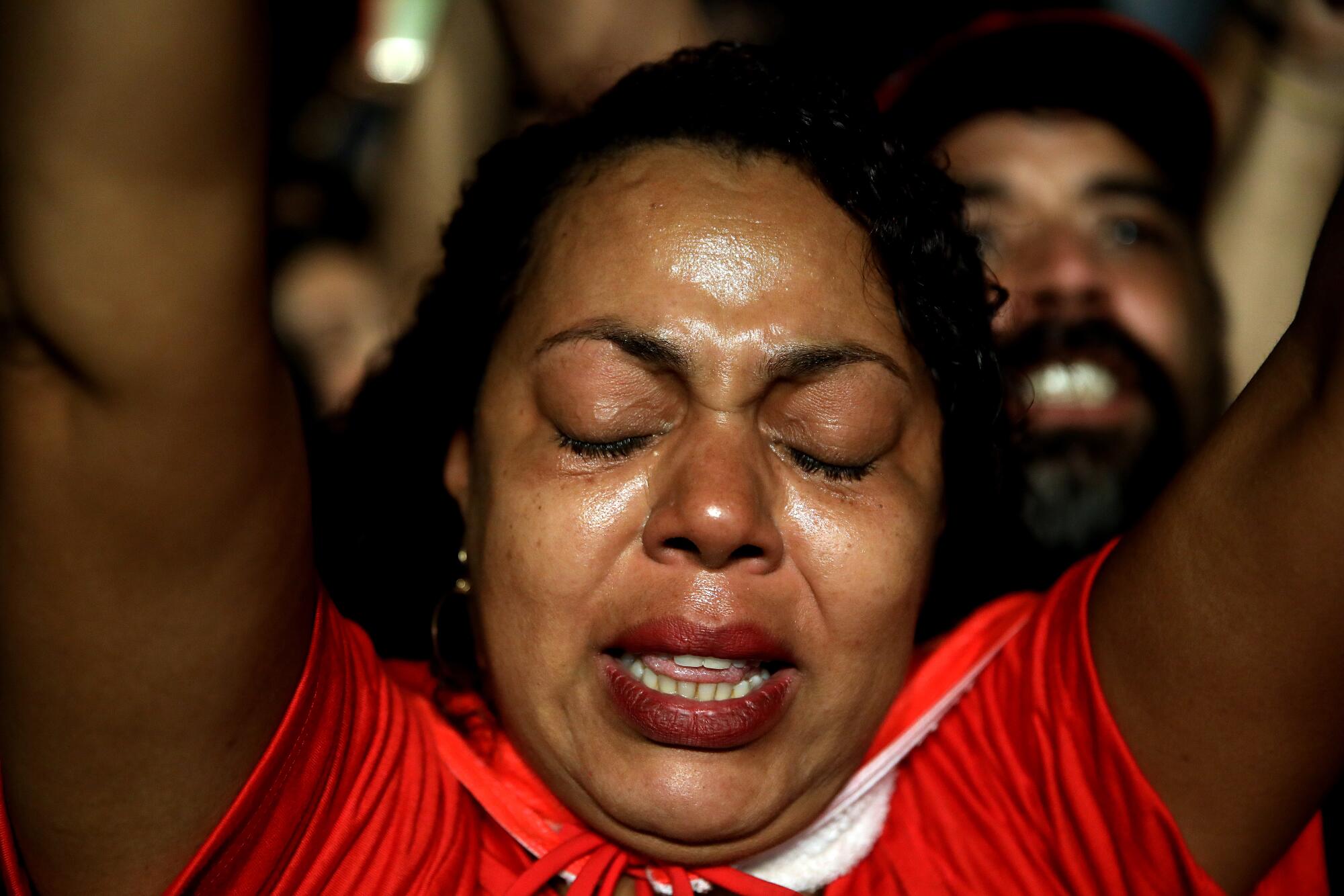
But when Lula started speaking, railing against classism, racism and Bolsonaro, to many it was as if time had stopped.
“People don’t opt to be poor,” he said. “We want to work, we want to eat well, we want our kids to have good clothes and shoes and three meals a day.”
It could have been two decades ago, when Lula first took office, or half a century ago, when he captured national attention as a pugnacious union leader challenging the country’s military dictatorship.
Born into a poor family in Brazil’s northeast, Lula left school at age 12 to help support his siblings and mother. A few years later, he lost his pinkie finger in an accident at an auto parts factory.
After organizing steelworker strikes that were credited with helping topple the dictatorship in 1985, Lula ran three unsuccessful presidential campaigns — in 1989, 1994 and 1998.
American tourists and remote workers are gentrifying some of Mexico City’s most treasured neighborhoods. Backlash is growing.
He won election in 2002 after compromising with the same powerful business interests that he had long criticized.
It was a heady time for leftists in Latin America.
The so-called pink tide had brought a whole cast of them to power — from Argentina to Bolivia to Ecuador.
The movement’s figurehead was President Hugo Chávez of Venezuela, a self-described Marxist who nationalized key industries and redistributed wealth to the poor while bending the constitution to stay in power.
Lula stood out as less of an ideologue and more of a pragmatist. He chose a Wall Street banker to head Brazil’s Central Bank, and when other leftist governments were defaulting on international loans, Brazil paid them back early.
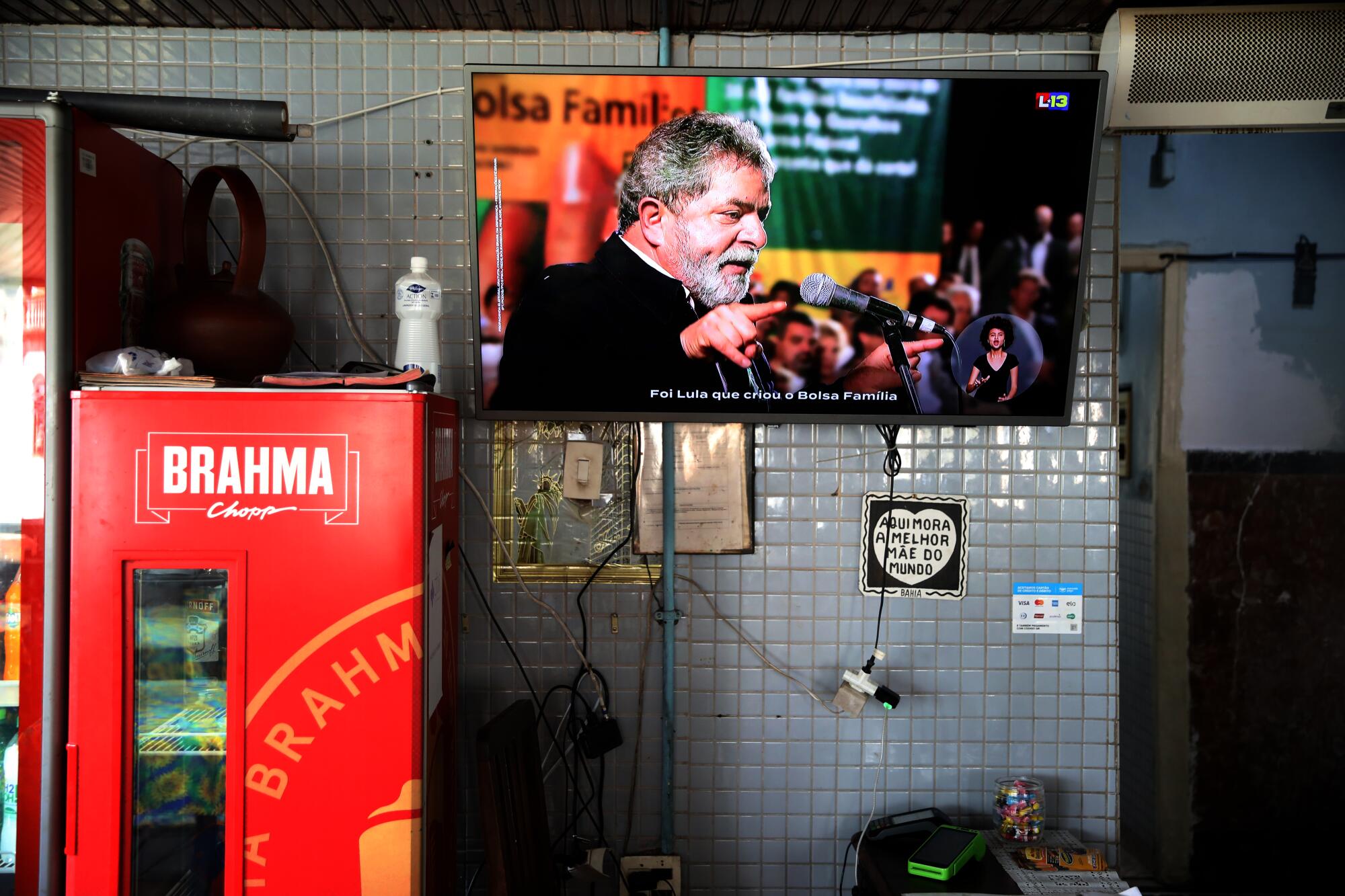
In that way, he’s a model for the current class of left-of-center politicians who have won election in recent years in Chile, Colombia, Mexico, Peru, Argentina, Bolivia, Panama and Honduras.
Several leaders of what analysts call the “new pink tide,” including Mexican President Andrés Manuel López Obrador, have borrowed elements of Lula’s signature health, education and social programs, albeit with mixed results.
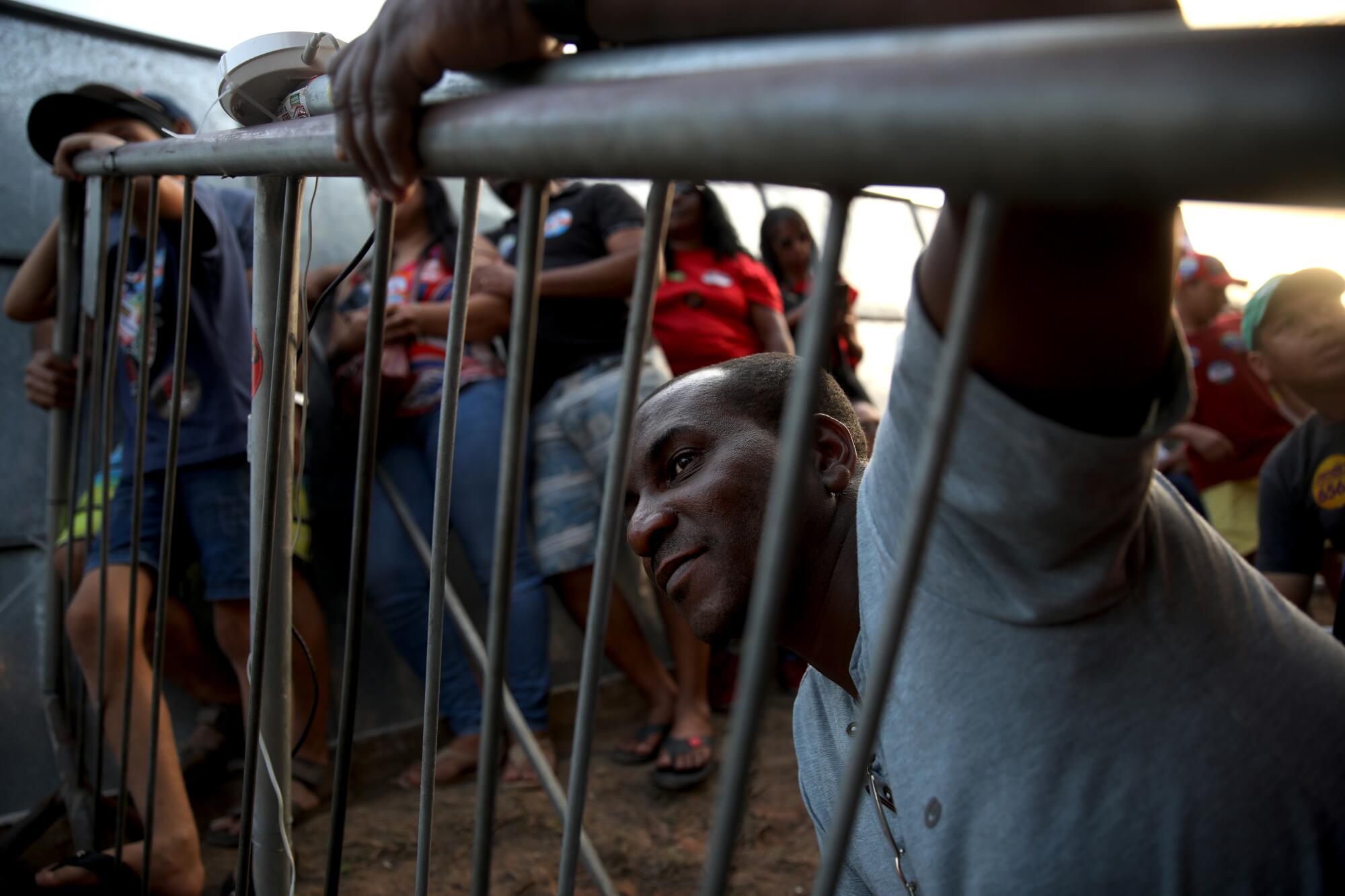
That’s in large part because his program, one that gave cash transfers of $30 a month to 12 million working-class families, led to such radical changes.
During Lula’s time in office, 20 million people vaulted out of poverty and the number of Afro-Brazilians attending university tripled.
Journalists in El Salvador who write about gangs can now be sent to prison. Two brothers defy the law with a story tying President Nayib Bukele to violent street gangs.
Rafaela Albergaria was one of those new students, becoming the first person in her family to go to college.
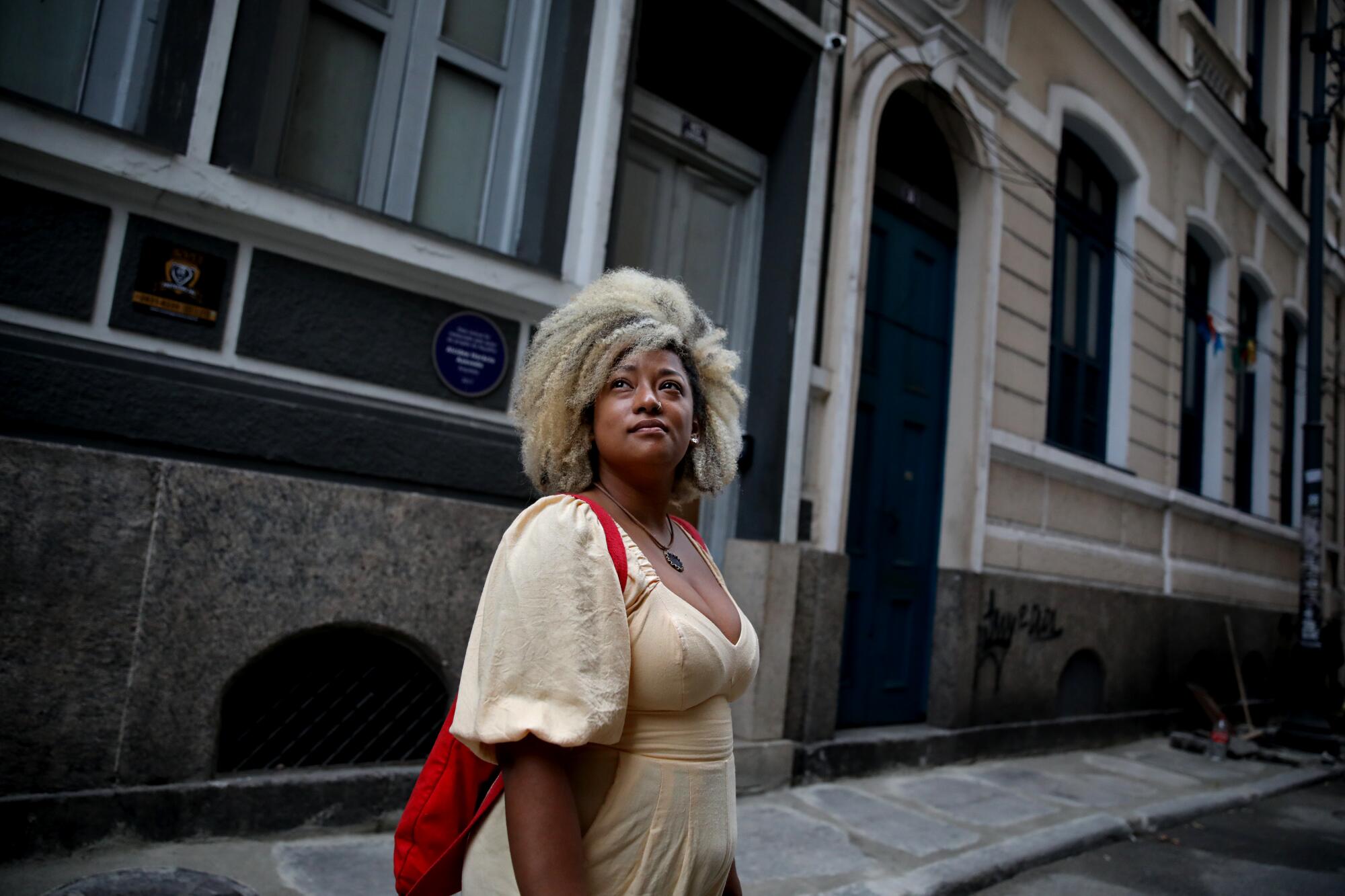
“I’m the embodiment of Lula’s policies,” she said.
A social worker from a blue-collar city outside Rio de Janeiro, Albergaria is a candidate for the state legislature this year under Lula’s Workers’ Party and is part of a nationwide movement that has encouraged Black women to run for office. She carries a red tote bag emblazoned with Lula’s face, and her campaign posters feature pictures of him embracing her in a bear hug.
Albergaria, 32, is thankful for Lula’s support.
But she is a reminder that if he wins, he will face pressures from those on the left calling for more radical action on issues such as gender equality, police brutality and climate change.
“We don’t just want Lula,” Albergaria said. “We want more.”
More to Read
Sign up for Essential California
The most important California stories and recommendations in your inbox every morning.
You may occasionally receive promotional content from the Los Angeles Times.
